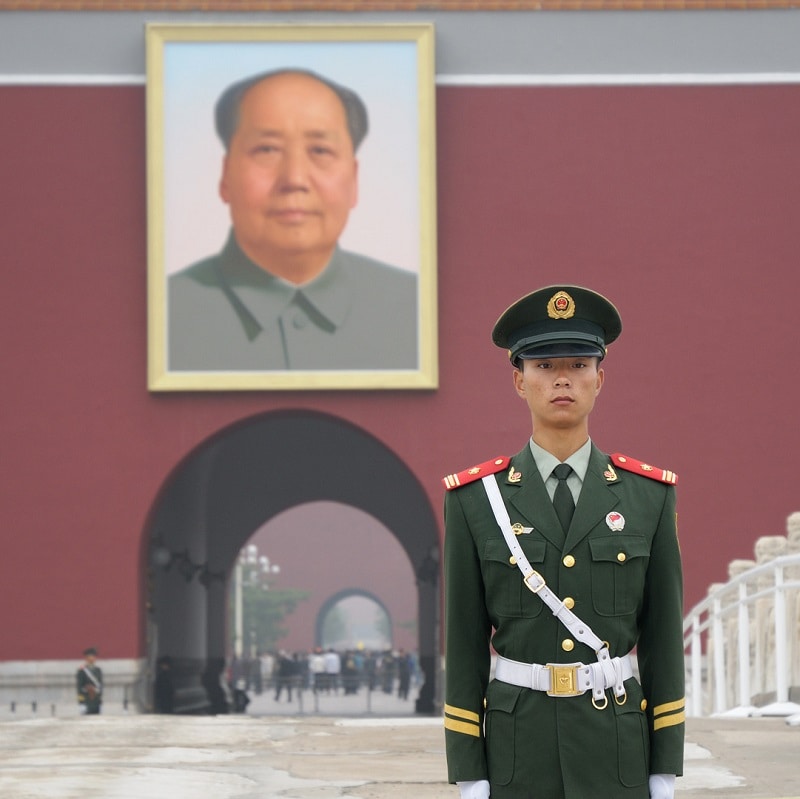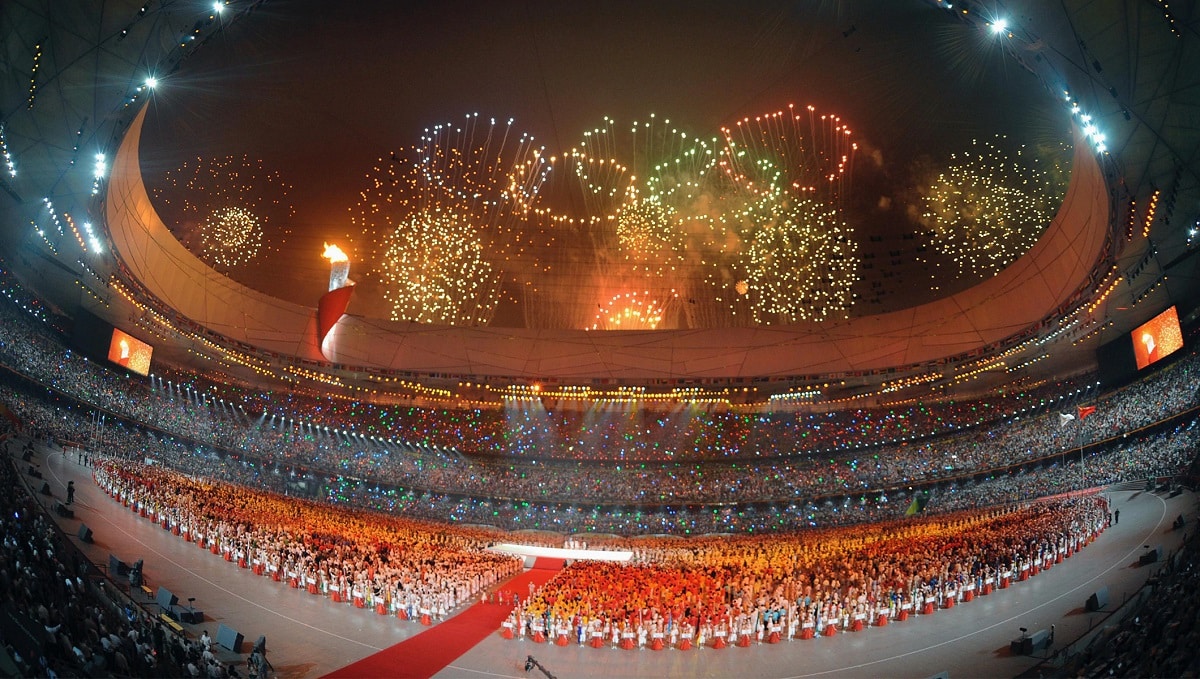The U.S. declaration that the Chinese government’s treatment of Uighur Muslims and other minorities in Xinjiang, China constitutes a genocide, has energized the global debate over the regime’s human rights record, including calls for boycotting the 2022 Olympic Winter Games in Beijing.
Recently, Congressman Michael Waltz proposed a resolution calling on the International Olympic Committee (IOC) to move the games to a different country and for the U.S. to boycott participating if the Olympics take place in China. The U.S. government ought to use this opportunity to lead, forcing a broader and more serious discussion over the international community’s response to China’s flagrant and inexcusable actions.
Sports and politics don’t mix. That said, the U.S. cannot blithely allow the games to take to place, ignoring the millions who probably won’t be able to watch the competition from their internment camps or slave-labor factory floors. There is an issue of proportionality here. Many countries, including the U.S., have lots of issues that want to intrude on the focus on athletes and the spirit of honest competition. What China has engaged is way beyond, systematic abuse managed by the government which spans inexcusable acts from long-term incarceration without due process to forced sterilization. To let the games proceed like business as usual would be akin to Rwanda hosting the summer games in 1994 at the height of the civil war—and no one asking where are the Tsutis?
Further, it is foolish to pretend to ignore the geo-political context swirling around the behavior of the Chinese Communist Party and the Beijing government. In the end despite, all the differences of the free nations around the world that would carry their flags in the opening ceremony believe in human rights, freely elected government, and the free enterprise system. The regime in China doesn’t believe in any of that. In fact, Beijing sees these impediments to the expansion of its power and influence. If the free world doesn’t stand up for the equities it cherishes, then how can they expect China or any other authoritarian regime to respect them. The notion of giving China a pass undermines the strength of the effort to combat Chinese malicious actions that threaten global stability and endanger international norms.

Chinese soldier guarding the southern entrance of the Forbbiden City in Beijing, dominated by a giant portrait of Mao Zedong.
Indeed, turning a blind eye to massive human rights abuses could not come at a worse time. China continues to fail to accept accountability for its role in triggering a global pandemic. The regime has doubled-down on oppressing civil liberties and its international commitments in Hong Kong. Beijing continues to act belligerently toward Taiwan. Globally, China continues to follow predatory business practices that foster corruption and exploitation and practice bullying “wolf warrior” diplomacy. Ignoring massive human rights abuses would only encourage more aggressive behavior by Beijing.
On virtually no front has the free world taken a concerted stand to call out the behavior of the regime. There has been no action by the UN Human Rights Council (UNHRC). Regarding the pandemic, the World Health Organization (WHO) has utterly failed to make China honor its commitments on reporting and cooperation regarding the outbreak and response of global pandemic. No international or multination institution has challenged China in a meaningful manner.
The lack of effective international and multinational response is exacerbated by a shortage of effective U.S. leadership. For example, the U.S. recently rejoined both the UNHRC and the WHO despite the fact that neither organization has committed to the necessary reforms that would allow to effectively challenge abuses such as those committed by the Beijing regime.
The failure of international institutions is not only a product of a weak response from its members. China has an explicit strategy of working within these groups to further its interests and impede effective international action.
The free world needs to start picking some ground to push back. Since China is so deeply vested in hosting the Olympics there is no issue on which it would be more vulnerable to international pressured. There eleven months before the opening ceremonies of the games, plenty of the time to start making demands and press for accountability, including, for example measures demanding that officials, companies and organizations involved in the genocide be barred from participating or demanding changes or transparency in China’s treatment of minorities.
The U.S. should publicly request the International Olympic Committee review of China’s suitability to host the 2022 Olympics. China cares deeply about its image. Publicly calling into question the People’s Republic of China’s ability to host the Olympics sends a strong message that China cannot hold a position of preeminence for an international sporting event—a prized role that should only be given to countries that respect their citizens’ rights. This should be paired with strong actions from the U.S.
James Jay Carafano, a leading expert in national security and foreign policy challenges, is the vice president of Heritage’s Kathryn and Shelby Cullom Davis Institute for National Security and Foreign Policy and the E. W. Richardson Fellow.

